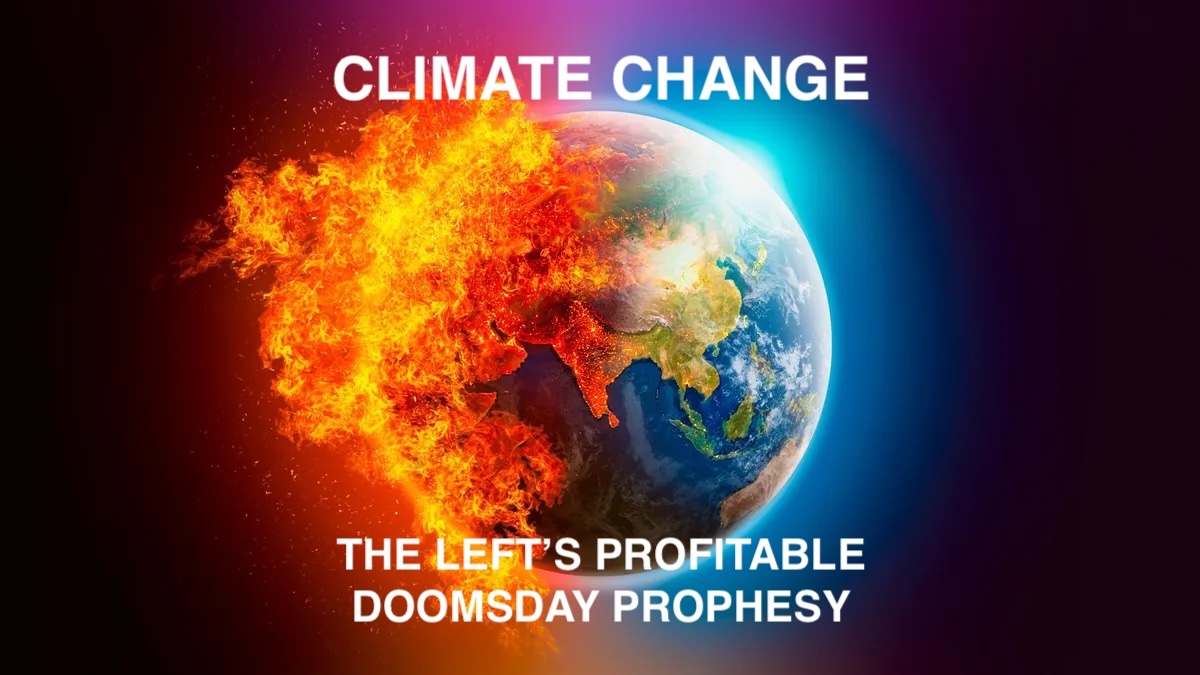Earth Day: From Grassroots Movement to Political Megaphone
Every April 22nd, millions unite to celebrate Earth Day, born in 1970 as a call to protect our environment. Over five decades later, it’s no longer just about planting trees or reducing pollution — it’s become a stage for global climate debates, political agendas, and, increasingly, narratives of fear.
The Left’s Obsession with Doom: Why Fear Sells
There’s a reason why predictions of catastrophe dominate climate conversations, especially from voices on the political left:
Fear avoids evidence. Fear ignores present realities.
Throughout history, societies have believed they were living in the “end times.” Whether due to religious prophecy, war, or natural disasters, humans are drawn to the idea that their era is the final chapter. The modern left has mastered the art of capitalizing on this mindset, affirming unfounded anxieties with apocalyptic climate narratives.
Whenever reality doesn’t match the fear, they simply shift the timeline or redefine the threat:
- Rising seas, mass extinctions, endless hurricanes—whichever outcome best fits the moment’s political goals.
- The focus isn’t on measurable progress or technological innovation but on keeping the public in a state of perpetual crisis.
Why? Because if you’re always looking at a terrifying future, you’re less likely to question what’s actually happening today.
When Climate Doomsday Predictions Fail
Let’s not forget the long list of failed climate predictions that were once declared “settled science”:
- 1970s: Looming global cooling would devastate agriculture.
- 1989: Coastal nations underwater by 2000.
- 2006: Al Gore’s 10-year countdown to disaster.
- 2013: Ice-free Arctic summers by 2015.
These weren’t fringe theories — they were widely promoted by politicians, media, and activists. Yet, the world continued, often without the predicted devastation.
Green Energy: Saving the Planet or Saving Portfolios?
It’s easier to push fear when there’s profit on the line. The rise of green energy markets has created a goldmine for those in power.
Case in point: Solyndra—the Obama-era solar company that collapsed after burning through $500 million in taxpayer funds. The scandal highlighted how political connections and green rhetoric can disguise financial mismanagement.
Today, as trillions flow into renewable energy sectors, we should be asking: Who really benefits from this climate panic?
Science Under Pressure: The Narrative Over the Data
In a concerning trend, scientists have confessed that they often tailor their research language to align with the dominant climate crisis narrative—out of fear their work won’t be published otherwise.
When academic freedom is replaced by ideological conformity, the public isn’t getting pure science—they’re getting approved storytelling.
It’s Not About Saving the Planet — It’s About Saving Ourselves
Let’s be clear: The Earth has survived worse than us.
Asteroids, super-volcanoes, mass extinctions—the planet has endured it all over 4.5 billion years and bounced back every time. The real issue isn’t whether Earth will survive—it’s whether we will thrive in a clean, healthy environment.
We don’t need fear to motivate us to care about pollution, innovation, and sustainability. We need honesty.
Final Thoughts: Choose Facts Over Fear
As Earth Day 2025 fades from the headlines, remember this:
- Fear is a tool.
- Doom sells.
- But progress is made by those who focus on reality, not relentless predictions of apocalypse.
Let’s push back against narratives designed to scare us into submission—and instead, work toward a future driven by truth, innovation, and a genuine desire for a better world.

Leave a Reply